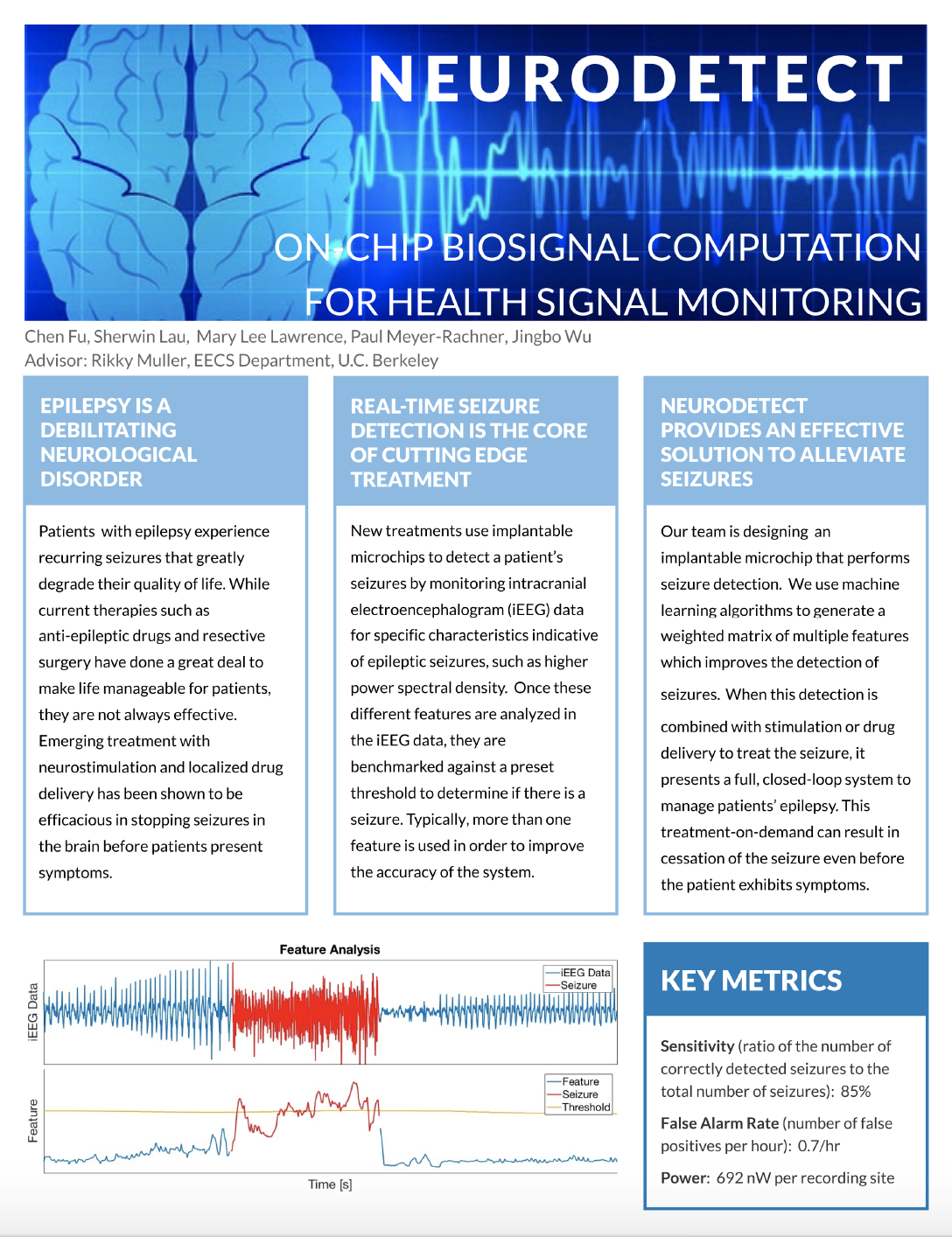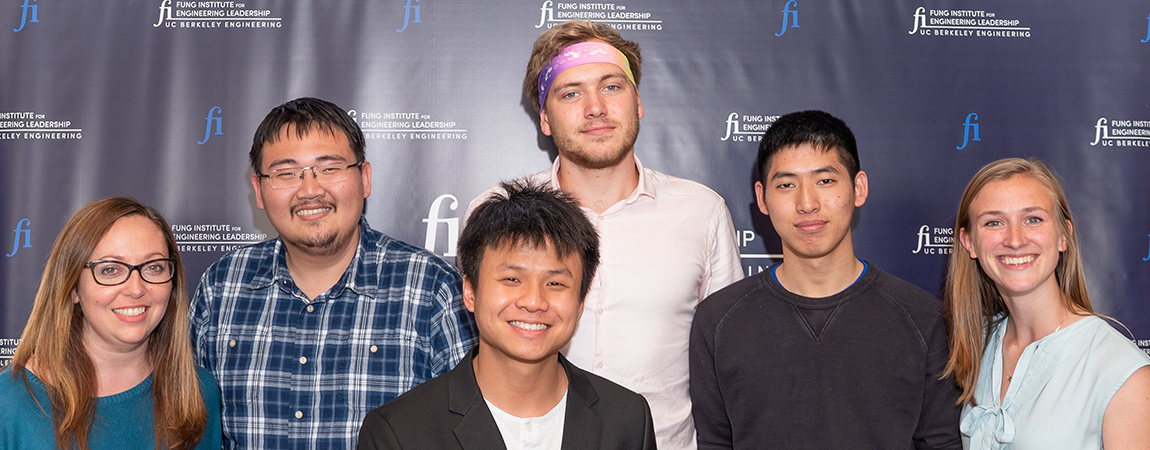The team designed an implantable microchip that can detect epilepsy seizures. Combined with electrical stimulation and/or drug delivery, this microchip can stop the onset of seizures before the symptoms appear.
Team: Chen Fu, Sherwin Lau, Mary Lee Lawrence, Paul Meyer-Rachner, Jingbo Wu
Advisor: Rikky Muller, EECS Department, U.C. Berkeley
EPILEPSY IS A DEBILITATING NEUROLOGICAL DISORDER
Patients with epilepsy experience recurring seizures that greatly degrade their quality of life. While current therapies such as anti-epileptic drugs and resective surgery have done a great deal to make life manageable for patients, they are not always effective. Emerging treatment with neurostimulation and localized drug delivery has been shown to be efficacious in stopping seizures in the brain before patients present symptoms.
REAL-TIME SEIZURE DETECTION IS THE CORE OF CUTTING EDGE TREATMENT
New treatments use implantable microchips to detect a patient’s seizures by monitoring intracranial electroencephalogram (iEEG) data for specific characteristics indicative of epileptic seizures, such as higher power spectral density. Once these different features are analyzed in the iEEG data, they are benchmarked against a preset threshold to determine if there is a seizure. Typically, more than one feature is used in order to improve the accuracy of the system.
NEURODETECT PROVIDES AN EFFECTIVE SOLUTION TO ALLEVIATE SEIZURES
Our team is designing an implantable microchip that performs seizure detection. We use machine learning algorithms to generate a weighted matrix of multiple features which improves the detection of seizures. When this detection is combined with stimulation or drug delivery to treat the seizure, it presents a full, closed-loop system to manage patients’ epilepsy. This treatment-on-demand can result in cessation of the seizure even before the patient exhibits symptoms.
KEY METRICS
- Sensitivity (ratio of the number of correctly detected seizures to the total number of seizures): 85%
- False Alarm Rate (number of false positives per hour): 0.7 /hr
- ower: 692 nW per recording site
*Neurodetect was the 2018 winner of the Fung Institute Award for the Most Innovative Project. This award honors a team that most effectively demonstrates the relevance of their problem, originality the proposed solution, and its potential for broad impact.
Related News:

← View all Capstone Projects



